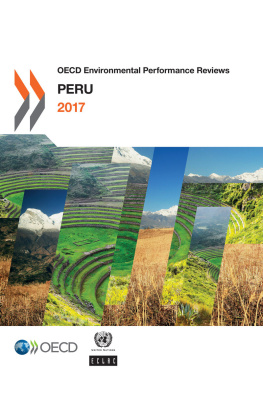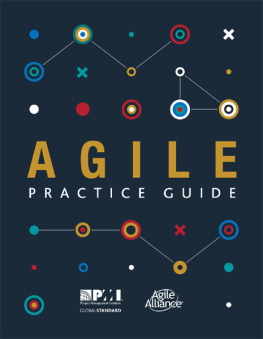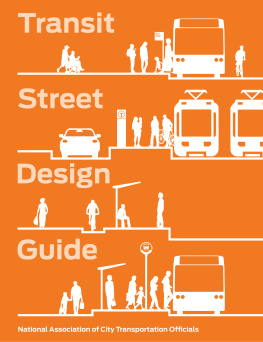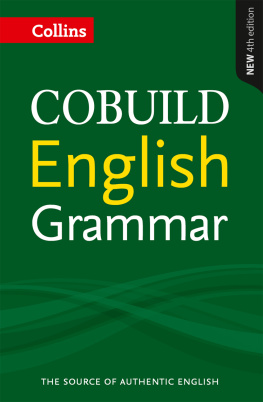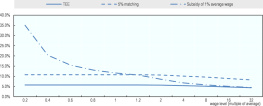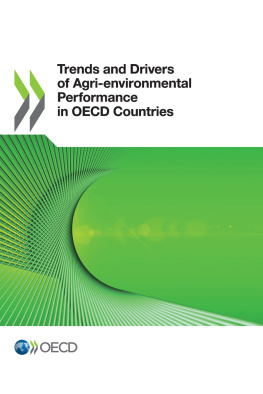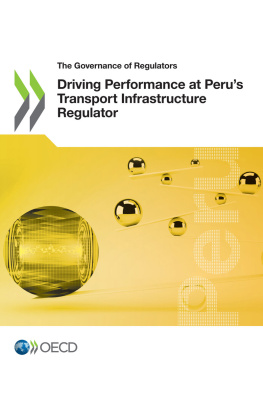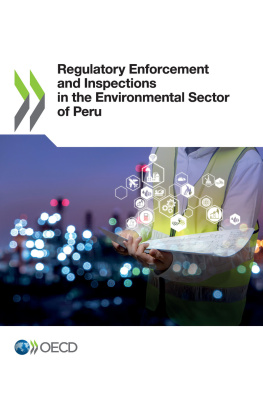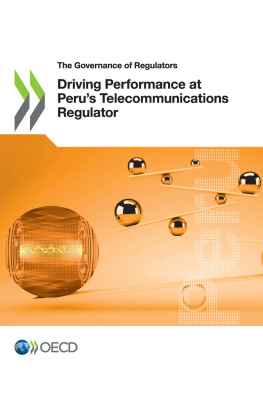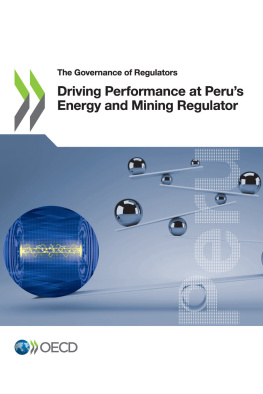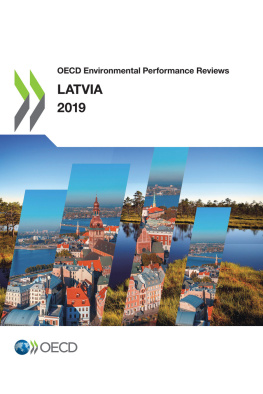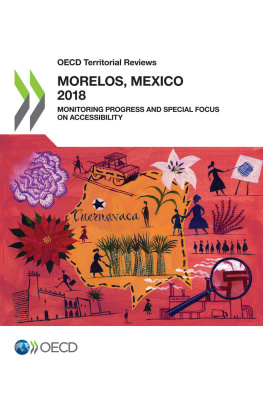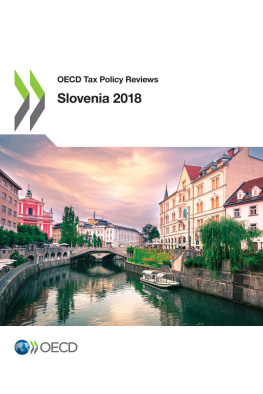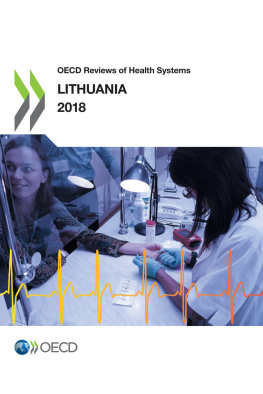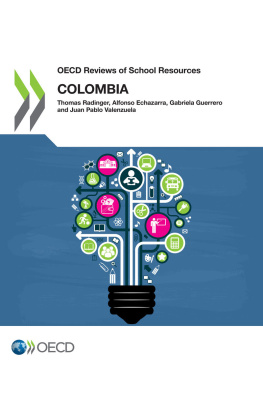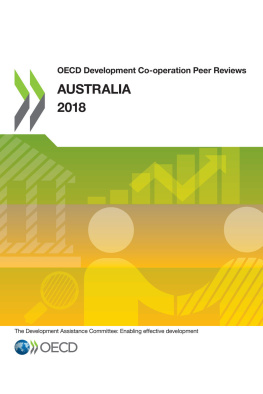coll. - OECD Environmental Performance Reviews: Peru 2017
Here you can read online coll. - OECD Environmental Performance Reviews: Peru 2017 full text of the book (entire story) in english for free. Download pdf and epub, get meaning, cover and reviews about this ebook. year: 2017, publisher: OECD; CELAC, genre: Politics. Description of the work, (preface) as well as reviews are available. Best literature library LitArk.com created for fans of good reading and offers a wide selection of genres:
Romance novel
Science fiction
Adventure
Detective
Science
History
Home and family
Prose
Art
Politics
Computer
Non-fiction
Religion
Business
Children
Humor
Choose a favorite category and find really read worthwhile books. Enjoy immersion in the world of imagination, feel the emotions of the characters or learn something new for yourself, make an fascinating discovery.
OECD Environmental Performance Reviews: Peru 2017: summary, description and annotation
We offer to read an annotation, description, summary or preface (depends on what the author of the book "OECD Environmental Performance Reviews: Peru 2017" wrote himself). If you haven't found the necessary information about the book — write in the comments, we will try to find it.
coll.: author's other books
Who wrote OECD Environmental Performance Reviews: Peru 2017? Find out the surname, the name of the author of the book and a list of all author's works by series.
OECD Environmental Performance Reviews: Peru 2017 — read online for free the complete book (whole text) full work
Below is the text of the book, divided by pages. System saving the place of the last page read, allows you to conveniently read the book "OECD Environmental Performance Reviews: Peru 2017" online for free, without having to search again every time where you left off. Put a bookmark, and you can go to the page where you finished reading at any time.
Font size:
Interval:
Bookmark:

OECD and ECLAC (2017), OECD Environmental Performance Reviews: Peru 2017 , OECD Publishing, Paris.
http://dx.doi.org/10.1787/9789264283138-en
The Republic of Peru has experienced notable economic growth in recent years. Between 2005 and 2015 Perus gross domestic product grew by an annual average of 5.8%, owing to a combination of macroeconomic stability, openness to trade and growing inflows of foreign direct investment attracted by the countrys wealth of natural resources and high commodity prices. Despite the marked significance of this growth phase, the challenge that remains is to transform that growth into more inclusive and sustainable economic development.
Peru is a multicultural and megadiverse country with abundant ecosystems and natural resources and an age-old tradition of managing its resources sustainably. However, the increasing pressure of the extractive industry, unplanned urbanisation and deforestation are threatening both this natural heritage and the wellbeing of the Peruvian people, undermining what could be the foundations of solid long-term growth.
The countrys high vulnerability to environmental changes, particularly those caused by climate change and extreme weather events such as El Nio, poses additional challenges to the development model. It is therefore ever more necessary to develop an institutional environmental strategy to ensure that economic progress goes hand in hand with proper environmental protection and that costs and benefits are shared fairly. That strategy must also promote the sustainable use of the natural heritage and anticipate environmental changes in order to help boost resilience.
During the period under reviewfrom the early 2000s to the presentsignificant progress has been made towards this end: the legal framework and environmental institutions have been strengthened, information systems have been improved, management tools that integrate economic and environmental components have been applied and progress has been made in defining a green growth strategy. Efforts made in environmental education, promoting citizen participation and access to justice on environmental matters are contributing to a more aware and active society in support of sustainable development.
Continuing to promote sustainable growth requires a State commitment to actively incorporate environmental protection into economic and sectoral policies, building synergies with environmental policy. Peru has good environmental indicators, including moderate waste generation, a small vehicle fleet and a limited contribution to climate change. This situation may make it easier to promote the changes needed to achieve sustainable development.
The aim of this environmental performance review is precisely to help Peru assess its progress towards achieving its environmental goals, enrich and ensure that the necessary policy dialogue continues uninterrupted, promote better accountability and deepen the awareness of all actors involved in the economic and social development of Peru. The 66 recommendations included in this study target some of the countrys main environmental challenges:
Continue to strengthen environmental institutions and environmental management systems at all levels, and ensure the effective implementation of environmental protection policies.
Ensure that the green growth strategy is a central pillar of development that involves sectoral ministries and makes them responsible for the environmental impact of their policies.
Promote greater use of economic instruments for environmental management, particularly environmental taxes, and eliminate damaging subsidies.
Ensure better environmental management in the extractive industries, tackling informality, improving the handling of chemical and dangerous substances and combating their negative effects on biodiversity and ecosystems.
Incentivise the sustainable use of the countrys rich natural heritage and the opportunities it generates for eco-innovation and the development of new economic sectors.
Continue strengthening information systems, education, participation and justice in environmental matters with a view to raising awareness of sustainable development throughout the country.
This review has been prepared by the Economic Commission for Latin America and the Caribbean (ECLAC) and the OECD, and it benefited from the constructive dialogue between Peru and the countries participating in the OECD Working Party on Environmental Performance. This joint effort helps to build awareness of the situation in different countries and facilitates continuing collaboration both among countries and with ECLAC and OECD, especially in the current framework of the 2030 Agenda for Sustainable Development and the Paris Agreement on climate change, which urge the international community to work decisively towards sustainable development and the common well-being of all people.
Alicia Brcena
Executive Secretary
Economic Commission for Latin America and the Caribbean (ECLAC)
ngel Gurra
Secretary-General
Organisation for Economic Co-operation and Development (OECD)
Font size:
Interval:
Bookmark:
Similar books «OECD Environmental Performance Reviews: Peru 2017»
Look at similar books to OECD Environmental Performance Reviews: Peru 2017. We have selected literature similar in name and meaning in the hope of providing readers with more options to find new, interesting, not yet read works.
Discussion, reviews of the book OECD Environmental Performance Reviews: Peru 2017 and just readers' own opinions. Leave your comments, write what you think about the work, its meaning or the main characters. Specify what exactly you liked and what you didn't like, and why you think so.

